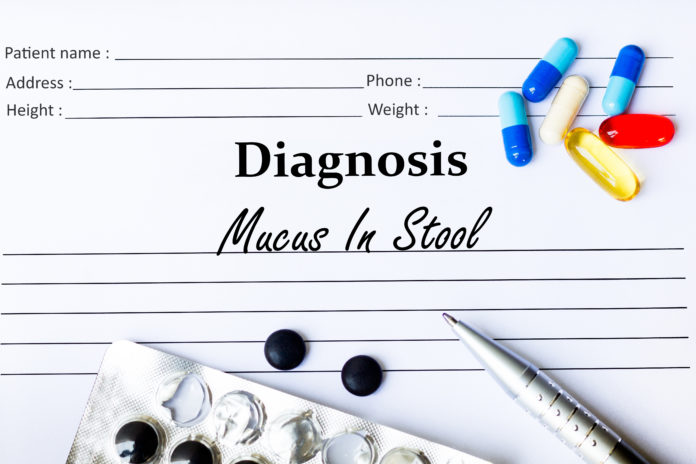Mucus is typically a thick, jelly-like substance that is produced regularly by your body. It efficiently helps reduce the damage caused by viruses, bacteria, or fungi. Besides, it also provides aid in protecting against stomach acid or any other potentially harmful irritants and fluids.
Thank you for reading this post, don't forget to subscribe!You should note that mucus in stool is quite common. When you’re healthy, your body produces clear mucus in significantly smaller amounts. Thus, it’s quite difficult to notice when it’s produced with your stool. But, if the mucus is noticeable in your stool, it’s probably because of an underlying health issue.
Keep reading the following section to learn about the most common causes of mucus in stool.
What are the Most Prominent Causes of Mucus in Stool?
There are a plethora of reasons behind the production of excessive mucus in stool. However, the two most common causes include constipation and dehydration. These conditions are very likely to cause normal mucus within your colon, only to leave your body while excreting. Thus, it withholds the capability of resolving on its own or with certain medications.
Sometimes, changes in the levels of mucus might also be due to an inflammatory gastrointestinal condition. Some of the most common conditions include the following:
- Cystic Fibrosis
It is a typical genetic disorder that deliberately results in sticky and thick mucus buildup. And this is quite noticeable in the pancreas, lungs, intestines, and even liver. This condition of Cystic Fibrosis is likely to promote excessive mucus in stool.
- Crohn’s Disease
This is another inflammatory bowel disease that significantly affects your GI or gastrointestinal tract. Some of the early symptoms of this condition include fatigue, diarrhoea, etc. And of them, the most prominent symptom is the presence of excessive mucus in the stool. This usually happens because of the disrupted mucus barrier within the inflamed intestines.
- Irritable Bowel Syndrome
The name IBS is given to a group of symptoms that distinctively includes cramping, abdominal pain, and altered bowel habits. And this typically occurs outside a disease diagnosis. Several kinds of research suggest that the presence of mucus in stool probably shares a connection with diarrhoea. However, this symptom is only experienced by those who are diagnosed with IBS.
- Ulcerative Colitis
Similar to Crohn’s disease, it is an inflammatory bowel disease but a typical chronic condition. This typically causes inflammation within the large intestine or the rectum. Thus, it results in a significant increase in mucus secretion, thereby increasing the presence of mucus in stool.
- Malabsorption Issues
Sometimes your bowel becomes incapable of absorbing certain nutrients properly. Nevertheless, there are various conditions that are related to malabsorption. Some of them include celiac disease, lactose intolerance, etc.
- Intestinal Infection
You’d be surprised to know, but intestinal infection can deliberately lead to the presence of excessive mucus in the stool. Some of the most prominent intestinal infections are caused due to bacteria, including shigellosis and salmonella. This can actually occur due to the consumption of contaminated food.
Studies suggest that bacterias are likely to stimulate excessive mucus production, thereby promoting mucousy stools. Besides, severe diarrhoea can also increase the presence of mucus in stools.
- Rectal or Colon Cancer
You will probably know rectal or colon cancer typically starts in your colon. It is very likely to cause typical symptoms such as mucus in your stool, blood in your stool, rectal bleeding, etc. Sometimes, this health condition can also promote unexplained weight loss.
How Can Mucus in Stool Be Treated?
The presence of excessive mucus in stool is very likely to be a symptom of an underlying condition. Thus, the treatment for this condition will vary according to the diagnosis. However, certain mild cases can be easily resolved by bringing forth significant lifestyle changes. Some of them include the following:
- Consuming food that is rich in probiotics
- Consuming supplements that contain probiotics like Lactobacillus or Bifidobacterium.
- Exhibiting a nutritious balance in your diet. In a nutshell, ensure equal amounts of fibre, fat, and carbohydrates in your regular diet.
On the other hand, certain prescription medicines are also required for those with chronic conditions. But if your healthcare provider discovers cancer, you’ll have to undergo different cancer-related treatments.
To Conclude
No person on earth doesn’t have mucus in their stool. Nevertheless, the amount of mucus in stool is so little that it isn’t quite noticeable. But if you can ever notice it, it’s probably a symptom of a more benign issue like occasional constipation or dehydration. And at times, the reason might also be a chronic health issue.

